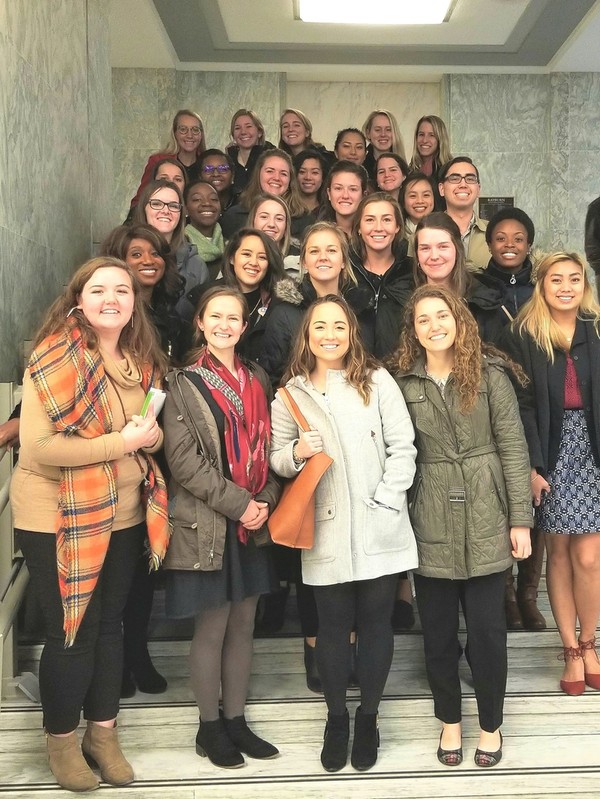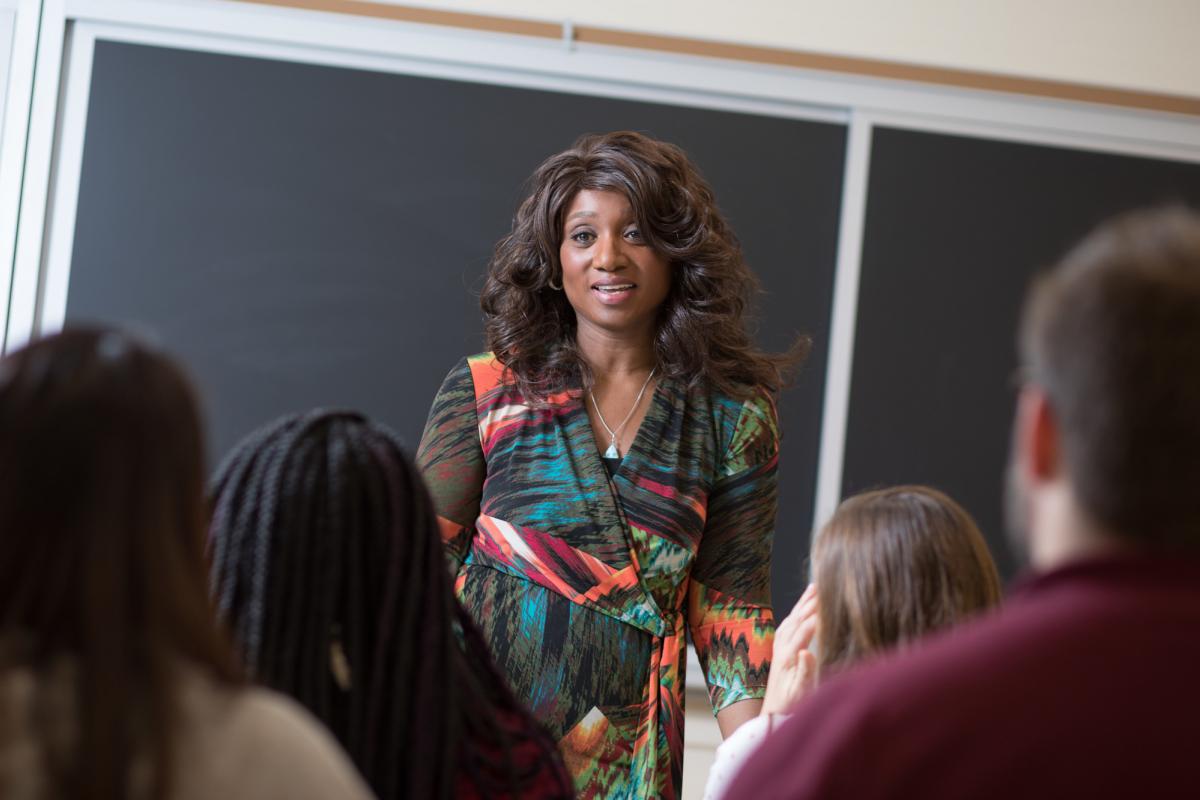A Nursing School Without Walls
What's it like to be 86, living alone, with no way to get to the doctor's office? How do you provide healthy food for your child when you are out of work? How do you get healthcare when you don't have health insurance or can't afford the co-pay?
Many issues surrounding access to healthcare and health equity can best be addressed by nurses, suggests Camille Burnett, PhD, assistant professor in UVA's School of Nursing. In her population and public health classes, you are just as likely to find her students working in the homes of vulnerable families or within a not-for-profit service organization as in the classroom.
"We want to engage with these communities where they are," says Burnett, who is also the school's academic director of community engagement and partnerships. "It's one thing to read about health inequities, but to see how they actually unfold and how they are experienced within the community—that's where the learning happens."
Burnett's students learn by partnering with the people who need their help. As part of their population and public health clinical rotation, students may work with low-income and at-risk families, the elderly, CHiP (Children's Health Improvement Program) recipients, homeless populations, previously incarcerated and substance addicted individuals living in a healing home, and the local Sexual Assault Resource Agency. They also make home visits and partner with community agency programs providing supportive services and resources.
"We are a nursing school without walls," says Burnett. "We build authentic partnerships with vulnerable populations and assess the needs of the families and communities we serve as a first step toward addressing those needs."
Typically, projects begin with a community assessment to identify and prioritize areas of need, followed by plans for a practical intervention. For example, meetings with a group in neighboring Louisa County resulted in nursing students providing basic CPR training for that community. In other cases, the focus might be on anti-bullying, hand washing to reduce the spread of disease, health education, or health promotion related to chronic disease and healthy living.
Third-year nursing student Amanda Paek had the chance to work in a community garden. "We wanted to offer that community better access to nutritious food," says Paek.
Fellow student Laura Killough enjoys seeing people in a different setting, outside of the hospital. "I think it adds a level of comfort for the patients," she adds.
"Always, the first step is building relationships," emphasizes Burnett.
While this approach may seem new, Burnett points out that nursing practice actually has its historical practice roots in communities and in public health. It has only become "medicalized" in more recent times.
"In some ways, public health nursing is returning to our roots and to a critical foundation of our practice," says Burnett. "This approach is more intentional in incorporating the social determinants of health with a primary focus on the 'upstream' spectrum of healthcare that includes promoting and protecting health."
Frequently, it also touches on health advocacy. Students are encouraged to think about how different health policies are shaped and how they affect the lives of the communities and populations they serve and to become engaged in local community boards. Once a year, Burnett takes a group of students to Capitol Hill, where they meet legislators and engage in discussing key health issues.

"Advocacy is a foundation of public health nursing," says Burnett. "You are always advocating for your clients' access to resources and for their right to healthcare. You are always looking at the individual within the context of the community and advocating for resources that have a positive impact on health."
--
Dr. Camille Burnett is an appointed member of the AACN faculty policy think-tank, a fellow of the University of Virginia Center for Health Policy, and serves on the Board of Directors for the Nursing Network on Violence Against Women, International, the advisory board of the Charlottesville Sexual Assault Resources Agency, and the National Health and Human Trafficking Advocacy Collaborative Group. She is also a representative on the National Health Collaborative on Violence and Abuse in Washington, DC.

